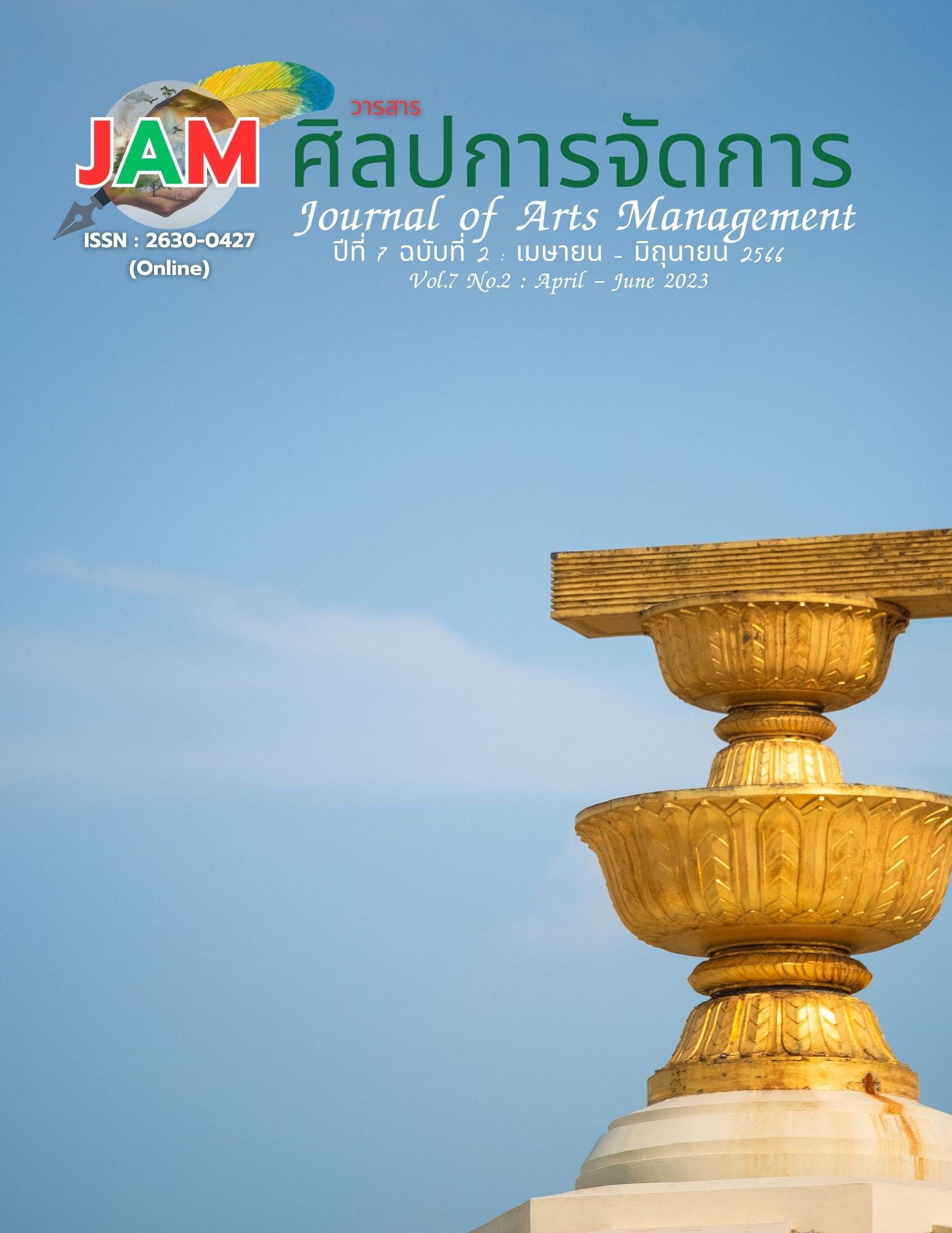The Indonesian Muslim Families after the Suharto era, 1998-2015
Main Article Content
Abstract
This research article focuses on the ideal family of Indonesian Muslims in the post-Suharto period during 1998-2015 and aims to illustrate: (1) the shift in Indonesian Muslim family ideals from the Suharto era to the post-Suharto period; and (2) the efforts of Indonesian Muslim intellectuals to establish a new family ideal through Indonesian novels. This article will employ a qualitative historical description approach and William Reddy's conceptual framework of "emotive" to read and interpret evidences of family ideals and emotions from modern Indonesian fictions. The findings of the study revealed that the patriarchal ideal of the family of Indonesian Muslims in the Suharto era was challenged by Indonesian Muslim women in order to create a better family based on democratic values in which civil liberty, women's rights, and gender equality are essential in maintaining a happy family life.
Article Details

This work is licensed under a Creative Commons Attribution-NonCommercial-NoDerivatives 4.0 International License.
Views and opinions appearing in articles in the Journal of Arts of Management It is the responsibility of the author of the article. and does not constitute the view and responsibility of the editorial team I agree that the article is copyright of the Arts and Management Journal.
References
Abidah El Khalieqy. (2009). Perempuan berkalung sorban (6th ed.). Arti Bumi Intaran.
Arimbi, D. A. (2009). Reading contemporary Indonesian Muslim women writers: Representation, identity and religion of Muslim women in Indonesian fiction. Amsterdam University Press.
Arnez, M. & Dewojati, C. (2010). Sexuality, morality and the female role: Observations on recent Indonesian women’s literature. Asiatische Studien/Études Asiatiques, 64(1), 7-38.
Arnez, M. (2009). Dakwah by the Pen: Reading Helvy Tiana Rosa's Bukavu. Indonesia and the Malay World, 37(107), 45-64.
Aspinall, E. & Fealy, G (Eds.). (2010). Soeharto’s new order and its legacy essays in honour of Harold Crouch. ANU E Press.
Aspinall, E., Fossati, D., Muhtadi, B., & Warburton, E. (2019). Elites, masses, and democratic decline in Indonesia. Democratization, 27(4), 505-526.
Aveling, H. (2007). Indonesian literature after Reformasi: The tongues of women. Kritika Kultura, 8, 5–34.
Ayu Utami. (1998). Saman. KPG.
Blackburn, S. (2004). Women and the state in modern Indonesia. Cambridge University Press.
Bourchier, D. (2015). Illiberal democracy in Indonesia: The ideology of the family state. Routledge.
Bourchier, D. M. (2019). Two decades of iIdeological contestation in Indonesia: From democratic cosmopolitanism to religious nationalism. Journal of Contemporary Asia, 49(5), 713-733.
Buehler, M. (2016). The Politics of Shari’a law: Islamist activists and the state in democratizing Indonesia. Cambridge University Press.
Cammack, M. (1989). Islamic Law in Indonesia's New Order. International & Comparative Law Quarterly, 38(1), 53-73.
Chin, G. V. S. (2017). State Ibuism and one happy family: Polygamy and the “good” woman in contemporary Indonesian narratives. In G. V. S. Chin, K. Mohd Daud (Eds.), The Southeast Asian woman writes back: Gender, identity and nation in the literatures of Brunei Darussalam, Malaysia, Singapore, Indonesia and the Philippines (pp. 89-106). Springer Singapore.
Curnow, H. M. (2007). Women on the margins: An alternative to kodrat?[Unpublished Doctoral dissertation, University of Tasmania].
Danerek, S. (2006). Tjerita and Novel: Literary discourse in post New Order Indonesia. Lund University.
Diprose, R., McRae, D., & Hadiz, V. R. (2019). Two decades of Reformasi in Indonesia: Its illiberal turn. Journal of Contemporary Asia, 49(5), 691-712.
Hatley, B. (1999). New directions in Indonesian women’s writing? The novel Saman. Asian Studies Review, 23(4), 449–460.
Hefner, R. W. (2000). Civil Islam: Muslims and democratization in Indonesia. Princeton University Press.
Mahfud Ikhwan. (2016). Ulid: Sebuah novel (2nd ed). Pustaka Ifada.
Mahfud Ikhwan. (2018). Kambing dan hujan: Sebuah roman (2nd ed.). Bentang.
Marching, S. T. (2007). Descriptions of female sexuality in Ayu Utami’s Saman. Journal of Southeast Asian Studies, 38(01), 133-146.
McGlynn, J. H. (2000). Silenced voices, muted expressions: Indonesian literature today. Manoa, 12(1), 38-44.
Nor Ismah, (2011). The new generation of women writers from the pesantren tradition in Indonesia. Explorations, 11(1), 105-120.
Reddy, W. (2001). The navigation of feeling: A framework for the history of emotions. Cambridge University Press.
Ricklefs, M. C. (2012). Islamisation and Its opponents in Java: A political, social, cultural and religious history, c. 1930 to present. NUS Press.
Robinson, K. M. (2008). Gender, Islam, and democracy in Indonesia. Routledge.
Sangrat, A. (2012). Forbidden desire: Sex and love in Fragrant Literature by Indonesian contemporary women authors[Unpublished master’s thesis, Walailak University].
Sears, L. J. (2007). Reading Ayu Utami: Notes toward a study of trauma and the archive in Indonesia. Indonesia, (83), 17-39.
Shiraishi, S. S. (1997). Young heroes: The Indonesian family in politics. Cornell University, Southeast Asia Program.
Suryakusuma, J. I. (1996) ‘The state and sexuality in New Order Indonesia’, in L. J. Sears (Ed.), Fantasizing the Feminine in Indonesia (pp. 92-119), Duke University Press.
Van Dijk, K. (2001). A country in despair: Indonesia between 1997 and 2000. KITLV Press.
Van Doorn-Harder, N. (2002). The Indonesian Islamic debate on a woman president. SOJOURN, 17(2), 164-190.
Warwick, D. P. (1986). The Indonesian family planning program: Government influence and client choice. Population and Development Review, 12(3), 453-490.
Wieringa, S. (2003). The birth of the New Order state in Indonesia: Sexual politics and nationalism. Journal of Women's History, 15(1), 70-91.


